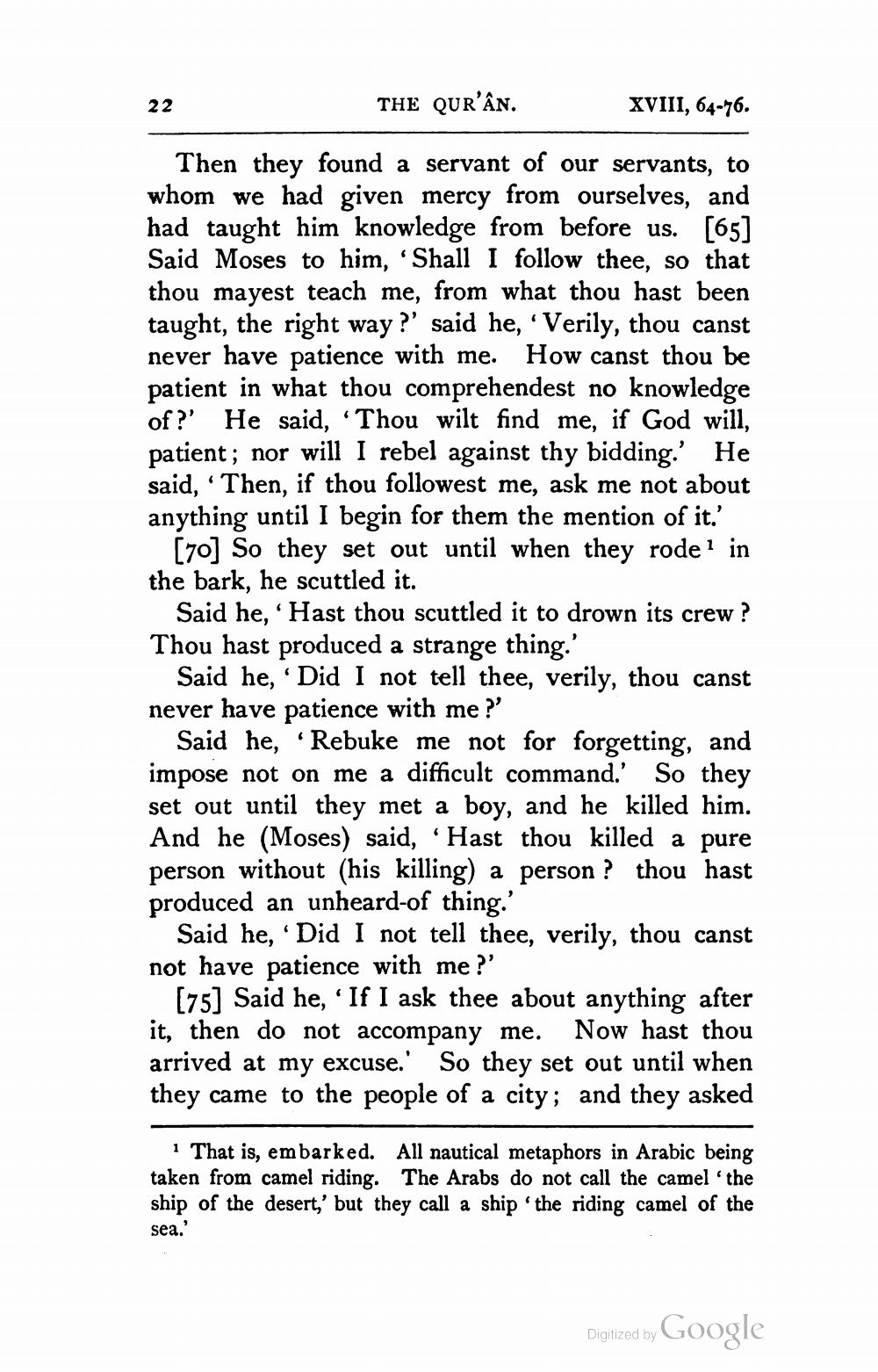________________
22
THE QUR'ÂN.
XVIII, 64-76.
Then they found a servant of our servants, to whom we had given mercy from ourselves, and had taught him knowledge from before us. [65] Said Moses to him, 'Shall I follow thee, so that thou mayest teach me, from what thou hast been taught, the right way?' said he, Verily, thou canst never have patience with me. How canst thou be patient in what thou comprehendest no knowledge of?' He said, “Thou wilt find me, if God will, patient; nor will I rebel against thy bidding. He said, “Then, if thou followest me, ask me not about anything until I begin for them the mention of it.'
[70] So they set out until when they rode in the bark, he scuttled it.
Said he, 'Hast thou scuttled it to drown its crew ? Thou hast produced a strange thing.'
Said he, 'Did I not tell thee, verily, thou canst never have patience with me?'
Said he, 'Rebuke me not for forgetting, and impose not on me a difficult command.' So they set out until they met a boy, and he killed him. And he (Moses) said, 'Hast thou killed a pure person without (his killing) a person ? thou hast produced an unheard-of thing.'
Said he, 'Did I not tell thee, verily, thou canst not have patience with me?'
[75] Said he, 'If I ask thee about anything after it, then do not accompany me. Now hast thou arrived at my excuse.' So they set out until when they came to the people of a city; and they asked
1 That is, embarked. All nautical metaphors in Arabic being taken from camel riding. The Arabs do not call the camel 'the ship of the desert,' but they call a ship 'the riding camel of the
sea.'
Digitized by Google




